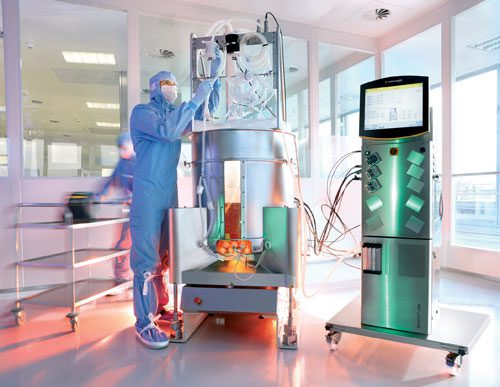

Recent years have witnessed bioreactor technology undergo an immense evolution, dramatically altering various industries’ landscape and improving their operational capacities. Among the pivotal innovations in this field stands the hollow fiber bioreactor, a technological marvel that has empowered businesses to streamline their processes, improve productivity, and uphold the highest standards of product quality. In this comprehensive article, we will delve into five key advancements in bioreactor technology that are catalyzing a revolution in modern businesses.
Single-use bioreactors mark an exciting development in bioprocessing. Unlike their traditional counterparts, single-use bioreactors are designed for single-use and subsequent disposal – eliminating time-consuming cleaning procedures to maintain the purity of the final product and minimize risks of contamination. This revolutionary design also simplifies and expedites laboratory workflow.
Single-use systems have quickly become the go-to solution for businesses seeking to streamline their processes, offering unparalleled flexibility and efficiency by easily being switched out between batches or production runs. This revolutionized how bioprocessing was approached within businesses – making it more accessible yet cost-effective than ever.
Automation has quickly become the cornerstone of modern bioreactor technology. Today’s automated systems manage an array of crucial tasks – temperature and pH regulation, nutrient delivery, and monitoring cell growth to name but a few – with ease and precision. This integration of automation not only amplifies precision but also drastically minimizes the margin for human error, consistently yielding reliable and high-quality results.
Moreover, the integration of data analytics and artificial intelligence into bioreactor systems empowers operators with predictive insights and decision support. The confluence of automation and data-driven intelligence ensures optimal bioprocessing conditions and product quality while enabling businesses to minimize resource wastage and accelerate time-to-market.
A profound shift toward continuous manufacturing has reshaped bioprocessing paradigms. In contrast to traditional batch processing, which entails intermittent production cycles, continuous manufacturing enables an uninterrupted flow of raw materials, resulting in heightened efficiency and superior product quality. This approach holds particular significance for industries necessitating high-output production.
Continuous manufacturing paves the way for a streamlined production pipeline, reducing bottlenecks and minimizing downtime. It facilitates the precise control of process parameters, allowing businesses to maintain consistent quality and adapt to dynamic market demands. This groundbreaking advancement has enabled businesses to maintain a competitive edge by responding swiftly to market fluctuations and ensuring the reliability of their supply chains.
The realm of bioreactor technology has witnessed remarkable strides in monitoring and control systems. Real-time data analysis now forms the bedrock of modern bioprocessing. Operators can closely monitor critical parameters such as temperature, pH, dissolved oxygen levels, and cell growth kinetics, ensuring the bioreactor operates optimally throughout the production cycle.
Data-driven decisions enhance product quality and reduce the risk of process deviations. Advanced monitoring and control systems, coupled with comprehensive analytics, enable businesses to preemptively identify anomalies and undertake corrective actions. This proactive approach translates into enhanced product consistency, improved process efficiency, and a substantial reduction in production-related costs.
Scalability is a hallmark of modern bioreactor systems, and it holds immense significance for businesses operating in diverse industries. Scalable bioreactors can seamlessly transition between different production scales, ranging from small-scale research and development batches to large-scale industrial production. This intrinsic flexibility empowers businesses to respond to evolving demands without the need for extensive reconfiguration or capital investment.
Whether businesses require small-batch experimentation or large-scale manufacturing, scalable bioreactor systems offer the adaptability needed to navigate the dynamic terrain of the modern marketplace. This capability not only optimizes resource allocation but also augments production agility, allowing businesses to remain agile and competitive in an ever-changing business landscape.
The advancements in bioreactor technology are catalyzing a transformative wave across diverse industries. From single-use bioreactors that simplify operations to the integration of automation, which ensures precision and efficiency, these innovations are reshaping the operational fabric of modern businesses. Furthermore, the adoption of continuous manufacturing is revolutionizing production methodologies, leading to enhanced efficiency and superior product quality. Improved monitoring and control systems, powered by real-time data analytics, offer businesses unprecedented insights and the ability to proactively manage their bioprocessing operations.
There’s nothing worse than lighting a new candle and watching it sputter out, tunnel, or…
Discover how woven metal fabric transforms restaurant design with its versatility, from feature walls to…
Upgrading your workspace? Get inspired by design ideas for materials, lighting, and amenities, and tips…
In recent years, the global interest in peptides has surged due to their wide-ranging benefits…
Maximize your workspace without overspending. Explore practical ways to expand your office using smart layouts,…
Discover how to create a thriving STEM community through hands-on, collaborative projects that are perfect…